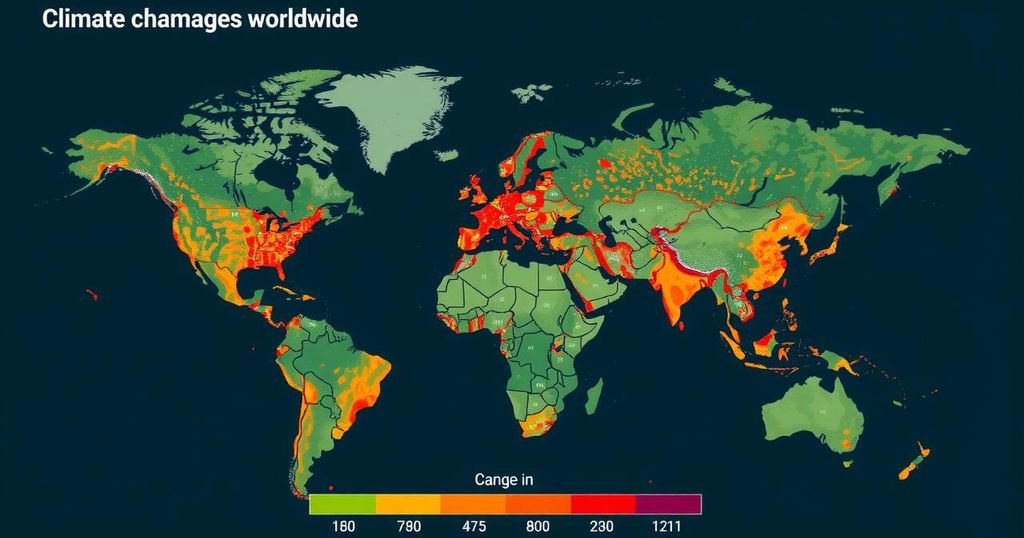A new study indicates climate change may account for nearly one-fifth of global dengue cases today, potentially increasing them by 40-60 percent by 2050. Researchers from Stanford and Harvard found significant links between rising temperatures and dengue incidence, stressing the need for emission reduction to mitigate future risks.
A recent study conducted by researchers from Stanford and Harvard Universities has revealed that nearly one-fifth of today’s global dengue cases may be attributed to climate change. The study, discussed at the Annual Meeting of the American Society of Tropical Medicine and Hygiene, suggests that climate change could lead to an increase in dengue occurrences by 40 to 60 percent by the year 2050. Erin Mordecai, a senior author and infectious disease ecologist at Stanford, indicated that there is a significant correlation between rising temperatures and the incidence of dengue, suggesting that climate change has already increased dengue incidence by 18 percent in the affected regions. The study indicates that the ongoing climate change is facilitating the spread of dengue in new areas, including parts of Europe and the Eastern Mediterranean, as warmer and more humid conditions prevail. The World Health Organization corroborates these findings, noting that the Americas have reported a dramatic rise in dengue cases, escalating from 4.6 million in 2023 to nearly 12 million in 2024, with cases emerging in states like California and Florida. Specifically, areas in the temperature range conducive to the virus’s transmission, between 20-29 degrees Celsius, such as parts of Peru, Mexico, Bolivia, and Brazil, are forecasted to face the highest risks, potentially experiencing a 150-200 percent increase in infection rates by the mid-century. Conversely, regions already experiencing higher temperatures like southern Vietnam might witness stable or slightly declining cases. Additionally, around 257 million individuals are currently situated in areas where climate change could lead to a doubling of dengue cases over the next 25 years. Importantly, the study acknowledges that the actual risk from climate change concerning dengue transmission may be underestimated due to the insufficient data from certain regions, particularly sub-Saharan Africa and South Asia. The researchers emphasize that reducing emissions could mitigate climate-related impacts on dengue spread. They found that with significant emission cuts, dengue prevalence increases could be limited to 40 percent rather than the expected 60 percent by 2050. Nevertheless, they conclude that the majority of the studied countries are still projected to face climate-induced increases in dengue cases under optimistic scenarios regarding carbon emissions.
Dengue fever, a mosquito-borne viral infection, has witnessed a global surge in recent years, primarily due to climate change. This shift in climate has led to warmer and more humid conditions, which are conducive to the proliferation of mosquitoes, thus facilitating the spread of diseases such as dengue. The World Health Organization has reported an increase in dengue cases worldwide, and the interconnectedness of climate change and infectious diseases is becoming increasingly evident as research begins to quantify these impacts more definitively. The study in question provides the latest insights into how historical and projected climate changes correlate with the incidence of dengue across various geographical regions.
The findings from this study underscore the urgent need to address climate change as a critical public health issue, particularly concerning the rise of mosquito-borne diseases like dengue. The correlation between climate fluctuations and increased dengue cases highlights the potential for significant health impacts across numerous regions worldwide. Furthermore, the recommendation for reducing emissions offers a potential avenue to mitigate these risks and is imperative for global health moving forward. It is essential for policymakers to recognize and act upon these findings to safeguard public health against the threats posed by climate change-related diseases.
Original Source: www.theweek.in






